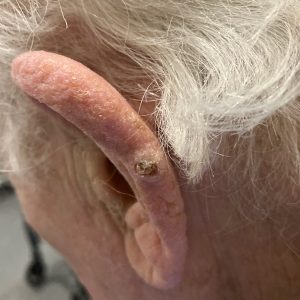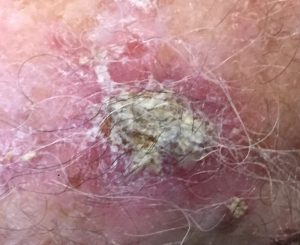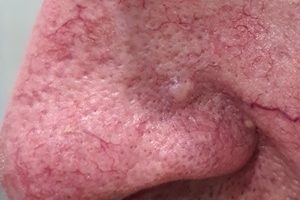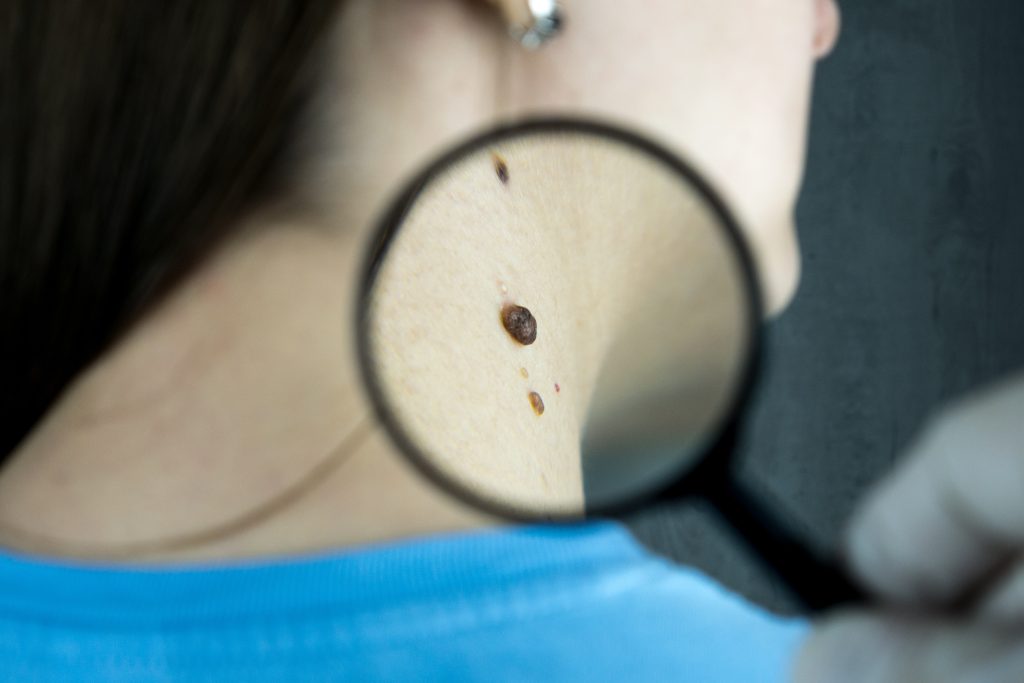What is Squamous Cell Carcinoma (SCC)?
Squamous cell carcinoma (SCC) is a type of skin cancer that arises from the squamous cells, which are flat, thin cells found on the surface of the skin. SCCs are one of the most common forms of skin cancer but is usually highly treatable if detected early. Along with Basal Cell Carcinomas (BCC) They are considered non-melanoma skin cancers.
Causes and Risk Factors
- Sun Exposure: Prolonged exposure to ultraviolet (UV) rays from the sun is a significant risk factor for SCC.
- Artificial UV Sources: Tanning beds and lamps can also increase the risk of developing SCC.
- Fair Skin: People with fair skin, light hair, and light eyes are at a higher risk.
- Age: SCC is more common in older individuals, especially those over 50.
- Weakened Immune System: Individuals with weakened immune systems are at an increased risk.


Signs and Symptoms
- Persistent Sores: SCC often appears as scaly red patches, open sores, or elevated growths with a central depression.
- Enlarging lesions: Any changes in the size, shape, or colour of existing skin lesions should be examined.
- Itching or tenderness: SCC lesions may be itchy or tender to the touch.
Diagnosis
- Skin Biopsy: A small sample of the suspicious area is removed and examined under a microscope to confirm the diagnosis.
- Dermoscopy: Typical SCCs can be confidently diagnosed by looking through a special magnifier called a dermatoscope.
Treatment Options
- Surgery: The primary treatment for SCC involves surgical removal of the cancerous tissue.
- Topical Medications: For superficial SCC, topical medications may be prescribed.
- Radiation Therapy: This may be used in cases where surgery is not suitable, or for tumours in sensitive areas.
Prevention Tips
- Sun Protection: Use sunscreen with a SPF 50+, wear protective clothing, and avoid excessive sun exposure, especially during peak hours.
- Regular Skin Checks: Perform self-examinations and consult a dermatologist if you notice any changes in your skin.
- Avoid Tanning Beds: Artificial UV sources can contribute to skin cancer.
Prognosis
When detected early, SCC is highly treatable with a good prognosis. Regular check-ups and early intervention are crucial for successful outcomes.
Follow-up Care
After treatment, regular follow-up appointments with your healthcare provider are important to monitor for any recurrence or new skin changes.


